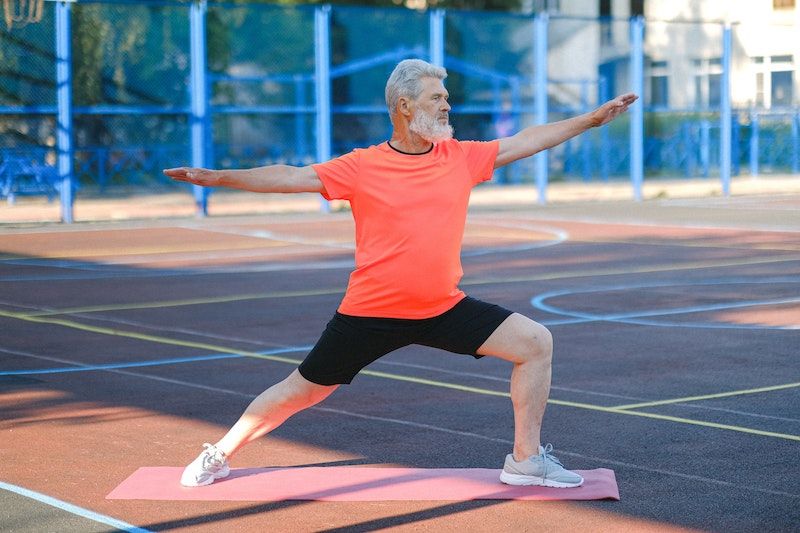
Maintaining a healthy body weight can help you feel better and prevent future health issues. As you age, it's often more difficult to move, so it can be a challenge to lose weight after 50 or 60. The good news is that it's possible to lose weight and get healthy by safely following these six steps.
1. Eat Plenty of Protein
The goal is to lose excess pounds, not muscle and bone mass. Instead of cutting foods out of your diet, focus on adding protein, calcium and vitamin D. When paired with exercise, these nutrients will help you build muscle and lose weight.
Recommendations suggest that a 180-pound person should eat 120 grams of protein a day, equivalent to about two chicken breasts, three eggs and one Greek yogurt.
To calculate the amount of protein you need to consume daily to remain healthy, try using the Protein Calculator. The calculator accounts for factors such as age, gender, height, weight and activity level.
2. Move Your Body
Losing weight after 60 requires you to move and get regular exercise. While you may not have the stamina to run a marathon, you should take part in low-impact workouts for seniors. Focus on flexibility and strength, such as walking, water aerobics, yoga or tai chi. Typically, aerobic or cardio exercises help you burn calories, while strength or resistance training will build muscle mass and improve your metabolism.
3. Drink Lots of Water
As you get older, you may not notice when you're thirsty instead of hungry. Try drinking 64 ounces of water a day, and check your urine for a pale yellow color. You can also get water from foods that are naturally hydrating, such as cucumbers.
4. Don't Go Hungry
To lose weight after 50, it may seem counterintuitive to eat more often. But going too long without eating in-between meals can make you overeat when you finally have a meal. Most experts recommend going no more than three to four hours without food. This routine will help keep your blood sugar levels stable and appetite in check. Try eating healthy snacks between meals to stave off your appetite while keeping your energy levels high.
5. Consult Your Doctor
Before changing your eating habits or exercise routine, you should always consult your doctor. They can tell you how to lose weight safely and ensure that any weight gain is not from a pre-existing health condition. Ask them how many calories you should eat a day and what kind of exercises are best for your activity level.
6. Get Enough Sleep
Sleep plays a huge role in your overall health. While you sleep, your body produces the human growth hormone (HGH) and gives you the energy to take on a new day. Make sure you create a regular bedtime routine and go to sleep at the same time every day. Strive to get seven to eight hours of quality sleep each night.
Weight Loss Workouts for Seniors at the Gateway Region YMCA
The Y has a variety of wellness opportunities for everyone, including seniors. Take advantage of our land and water group exercise classes or work with a personal trainer to accomplish your goals. Contact us online with any questions or stop by a local branch near you today!